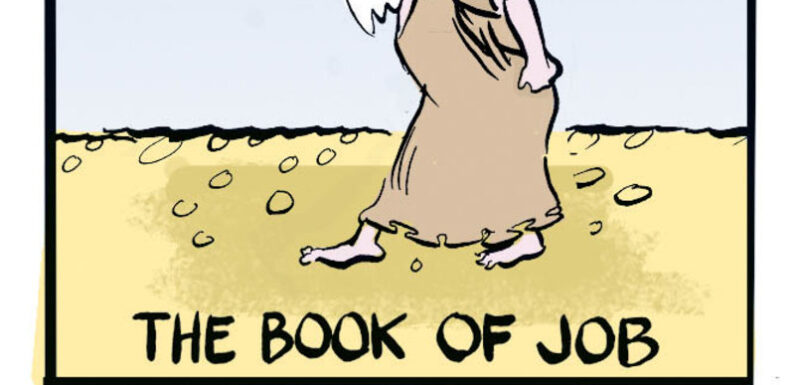
Save articles for later
Add articles to your saved list and come back to them any time.
The Old Testament Book of Job (pronounced Jobe) is a source of wisdom and, in its own way, a source of encouragement in the way it deals with the question of faith, and the concept of natural justice.
Illustration:Credit: Andrew Dyson
Through devastating personal loss and physical affliction Job’s unswerving commitment to faith in God, a God whose peace transcends all human understanding, braced him to accept the reality of how his life had unfolded.
Setting aside advice of friends and the urgings of his wife, he concluded that his only way forward was to accept the bad with the good, and neither betray his personal convictions nor abandon hope.
As the book progresses and we witness Job cling doggedly to his beliefs, we hear his plaintive cries for justice until he falls silent, but yet still with faith. We are left in no doubt as to the insignificance of the individual within the grand scheme of creation, or the non-existence of any form of natural justice.
In contrast to the story of Job, we live in times where the concept of natural justice is increasingly hard-wired into our culture. It has become an expectation. Indeed, our legal system is constructed around this premise.
Despite this, and like Job, sometimes things happen to us to which there is no guarantee of redress or fairness. We might have been the victim of an internet scam; had possessions maliciously damaged; our reputation besmirched; or, our property obliterated through natural disaster. We might wonder what we have done to deserve such unjust treatment.
Even though we may have rights to pursue recourse, the extent of the poor fortune with which we have been afflicted may make such options seem like a mountain too difficult to climb.
It is in these circumstances that we need to be prepared to accept the reality of our situation, however painful, and move forward with the most positive demeanour we can muster – and with faith. Admittedly, first steps may be faltering.
Whether we be faced with chaos, criticism or defeat, Job shows that it is possible to draw on faith and inner reserves to maintain our dignity and a sense of self-worth. He shows us that suffering is part of living, and that regardless of the counsel of friends or family, it is the inner peace we can draw on through faith that is our foundation stone in times of trouble.
Most Viewed in National
Source: Read Full Article
